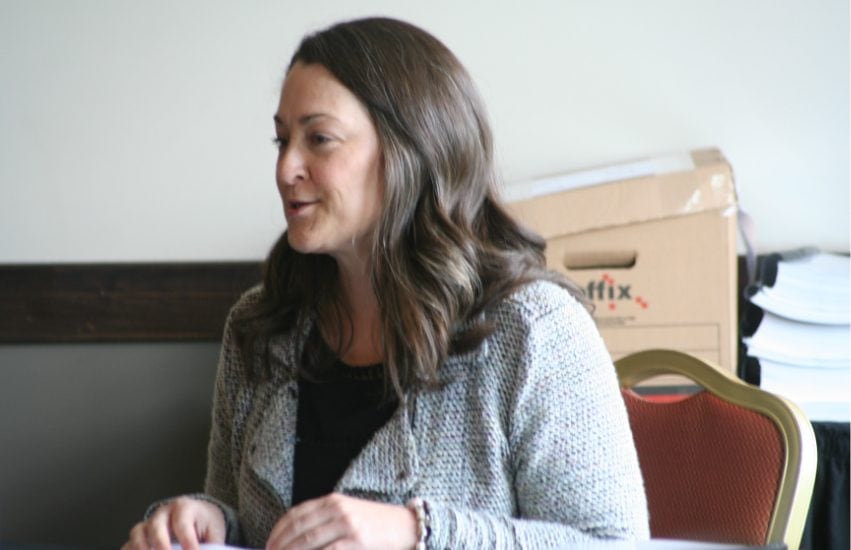KJIPUKTUK (Halifax) – Community Services made little to no effort to find Joey Delaney an alternate housing option, even after his stay at Emerald Hall, a locked psychiatric ward within the Nova Scotia Hospital complex, was deemed to be no longer medically necessary.
This became clear through cross examination of government witness Christine Murray, a care coordinator at Community Services who managed Joey’s case until sometime in 2015.

Joey, who is 45, is one of two complainants in the ongoing human rights enquiry that looks into the lack of suitable housing options for people who live with disabilities.
When Joey became ill in 2010, he was sent to Emerald Hall. Prior to that he lived in a small options home in Dartmouth for 15 years. That home was run by the Regional Residential Services Society (RRSS), a non-profit organization that provides supportive housing in HRM.
That same year Joey arrived at Emerald Hall he was deemed to have recovered and was discharged from Emerald Hall. However, that didn’t mean he was able to return to his home in Dartmouth. Except for a relatively brief stay at Quest in Lower Sackville, Joey has lived at Emerald Hall ever since, very much against his and his family’s wishes. Emerald Hall is a terrible place to live.
Yesterday we learned that Community Services made very little effort to find a more suitable place for Joey to live.
Murray’s testimony showed that on only three occasions between 2010 and today a change was contemplated. Nothing came of two of these, and a third effort resulted in a relatively short stay at Quest, a change many community living advocates would consider not much of an improvement.
The first opportunity arose in 2011 at Braemar Home Corp.. Braemar was a large institution whose license was pulled that same year when it was found that a resident was confined in his room for two weeks.
Also that year a placement at the Kings Regional Rehabilitation Centre in Waterville was briefly considered.
Nothing ever came of it. Of course, neither Braemar nor Kings offer anything even remotely like community living, and are far removed from Joey’s mother, who lived in Dartmouth and was too sick to travel at the time. Joey’s mother has since passed away.
Testimony also revealed that Murray, who was in charge of finding Joey a better placement than the Nova Scotia Hospital, never once met Joey’s mother, and spoke to her on the phone for the very first time in 2015, seven years after taking on Joey’s case.
2015 was also the year that Joey was moved to Quest, in Lower Sackville, another large institution where many residents are locked up against their will. “It was not an ideal placement,” Murray told the enquiry.
But that stay didn’t last very long, and by 2017 Joey is back at Emerald Hall. Quest staff reported that Joey’s increased agitation and vocalizations were bothering other residents.
Only at the Dartmouth General was it discovered that Joey was in pain because of painful bowel problems. “Once diagnosed, he returned to baseline,” a report states.
Earlier testimony, by RRSS CEO Carol Brennan, revealed that she had made efforts to have Delaney as well as co-complainant Sheila Livingstone return to the care of RRSS immediately after their recoveries. It didn’t happen because Community Services and Emerald Hall staff were opposed.
The enquiry will resume in August.
If you can, please support the Nova Scotia Advocate so that it can continue to cover issues such as poverty, racism, exclusion, workers’ rights and the environment in Nova Scotia. A paywall is not an option for us, since it would exclude many readers who don’t have any disposable income at all. We rely entirely on the kindness of occasional one-time donors and a small group of loyal monthly sustainers.



